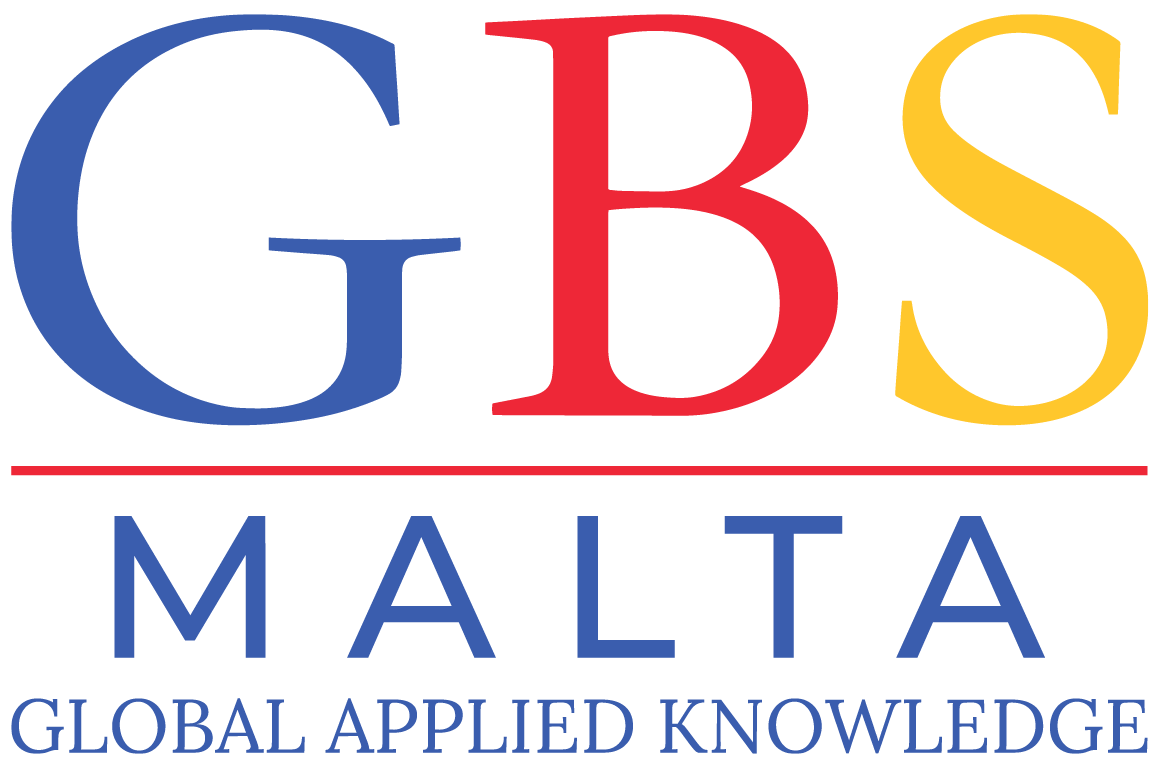Step 1: Secure your place at a Maltese institution
Your journey begins with an offer letter from a licensed institution like GBS Malta. This document confirms your acceptance into a programme and is the cornerstone of your Malta student visa application.
After receiving it, you will need to pay a deposit to secure your spot. Keep the payment receipt – it is essential for your Malta student visa checklist. GBS Malta’s team ensures you understand this step clearly, setting a solid foundation for your application.
Step 2: Prepare your documents
Gathering the right documents is the key to a smooth Malta student visa application. Here is a Malta student visa checklist to guide you:
Ensure that each item above is checked off. Double-check spellings, dates, and names match across all papers. GBS Malta’s compliance team reviews your documents to ensure they meet requirements, reducing the risk of delays.
Step 3: Book and attend your VFS appointment
Next, you will submit your application through VFS GlobalVFS Global, the official visa processing partner. GBS Malta books your appointment, saving you time and hassle. At the appointment, you will provide your Malta student visa documents and biometric data (fingerprints and photo).
Arrive on time with everything organised to avoid issues. This step is straightforward with GBS Malta’s support, ensuring your application moves forward smoothly.
Step 4: Wait for visa processing
The Malta student visa processing time typically ranges from four to nine weeks, depending on your country and application volume. Avoid making travel plans until approval is confirmed.
You can track your application via VFS Global’s website.
GBS Malta stays in touch, answering questions and keeping you updated, so you are never left in the dark during this waiting period.
Step 5: Receive your visa and plan your travel
Once approved, you will receive a visa sticker in your passport. Now you can plan your travel to Malta. Aim to arrive one to two weeks before your course starts to settle in and attend orientation.
GBS Malta provides pre-arrival guidance, helping you prepare for your new adventure. This step marks the exciting transition from applicant to student.
Step 6: Apply for residence permit upon arrival
After arriving, you will need a residence permit through Identità, Malta’s identity agency. This involves submitting documents like accommodation proof and health insurance, plus a biometric appointment.
GBS Malta guides you through this process, ensuring all requirements are met. The permit is usually issued within weeks, securing your legal stay for your studies.
Malta student visa interview tips
The student visa interview can be nerve-wracking, but preparation can ease most wrinkles.
Review your application, know your course details, and stay honest – do not embellish.
Expect questions about your finances, your ties to Malta and your motivation. Practice with a friend and keep your answers clear, short, and in line with your documents.
Bullet-points for the day:
Prepare for a visa interview
While not always required, some applicants may face a Malta student visa interview. Be ready to discuss why you chose Malta, your course, and funding plans. Practice clear, honest answers to build confidence. GBS Malta conducts mock interviews to prepare you for your student visa success.
Common visa interview questions and how to prepare
| Common questions |
How to prepare |
| Why study in Malta? |
Link programme to your goals |
| Who is funding your studies? |
Have documents ready |
| Can you explain gaps in your education? |
Be honest and brief |
| Where will you stay in Malta? |
Show proof of address |
Mention Malta student visa interview and student visa interview tips repeatedly in your preparations. For detailed guidance, see our blog on Student visa interview tips to study in Malta.
Understanding the Malta student visa processing time
One of the biggest worries for international students is the wait. How long will it take? When can you book your flights?
The good news is, while exact times can vary, there is a typical timeline for Malta student visa processing time that can help you plan. Knowing this helps manage expectations and reduces pre-travel stress. Students often underestimate how long the process can take, which can lead to stress and potentially missing the start of their course. Providing a clear, week-by-week timeline helps manage expectations and reduces anxiety, transforming a common challenge into a point of reassurance.
-
The main processing period typically takes between four and nine weeks, varying by country. It is wise to hold off on making travel plans until your visa is approved. Once approved, you get your visa sticker!. It is recommended to arrive one to two weeks before your course starts, giving you time to settle in and attend orientation.
-
Your visa gets you into Malta, but for longer stays, you will need a residence permit. After arriving in Malta, students begin the Identità residence permit application process.
-
The support continues here, assisting with the Identità application, health insurance, accommodation documents, and biometric appointments.
Successful visa acquisition is merely the first hurdle; continuous compliance, enabled by institutional support, is necessary for a student's legal and successful long-term stay.
Malta student visa processing time breakdown:
| Phase |
Typical timeline |
Key actions and GBS Malta support |
| Offer and deposit |
Week 0-1 |
Receive offer, pay deposit. GBS Malta sends checklist. |
| Visa prep |
Week 1-2 |
Gather documents (passport, finances, accommodation, insurance). GBS Malta reviews. |
| VFS appointment |
Week 2-4 |
GBS Malta books appointment. Student submits application and biometrics. |
| Visa processing |
Week 4-9 |
Visa decision by authorities. Avoid firm travel plans. |
| Visa approval and travel |
Week 6-9 |
Receive visa. Arrange travel (arrive one to two weeks before course). |
| Arrival and residence permit |
Week 9-12 |
Arrive in Malta. GBS Malta assists with Identità application and biometrics. |
Common challenges and how to avoid them
Even with a clear guide, small hurdles can sometimes arise. Many students face similar issues, but the good news?
Most of these are completely avoidable with a little foresight and attention to detail.
Let us look at the most frequent compliance issues and how you can sidestep them for your Malta student visa. This often points to a 'guidance gap' were students, especially those from diverse linguistic backgrounds, struggle to interpret complex regulations from potentially unreliable online sources.
Institutions, by offering clear, personalised guidance, directly fill this gap, transforming a common source of failure into a pathway to success.
-
Incomplete or incorrect financial documentation: This is a major obstacle. Students often submit outdated bank statements, statements missing account holder names, or those that do not cover the full required period (e.g., three months).
-
Tip: Ensure statements are recent, show consistent activity, and clearly link to you or your sponsor with a proper, notarised sponsorship letter.
-
Submitting fake or altered documents: This is a serious red flag. Some students, unfortunately, are misguided by unofficial agents to submit fraudulent documents. This leads to immediate refusal and long-term visa bans. Visa authorities operate on trust. Any attempt to deceive them creates a 'trust deficit' that not only impacts the individual applicant but can also lead to increased scrutiny for future applicants from that region or institution. This implies that institutions have a responsibility to educate students about the ethical implications and severe consequences of such actions, reinforcing the importance of genuine applications for the integrity of the entire system.
GBS Malta's support: your partner in the visa journey
You are not alone on this journey!.
At GBS Malta, support for your Malta student visa does not end when you get your offer. From the moment you confirm your place to settling into life on the island, our dedicated teams are right there with you, making sure your transition is as smooth as possible.
This approach demonstrates a shift from merely facilitating entry to fostering long-term student success and well-being. Comprehensive support builds trust and loyalty, reducing student attrition due to compliance issues and enhancing the institution's reputation as a truly supportive environment.
Right after you receive your offer, our compliance team steps in with clear, tailored advice on exactly what documents you need and how to prepare them.
GBS Malta proactively books your VFS appointment on your behalf, navigating the system for you. Once you arrive in Malta, support continues. We help you complete your Identità application, advise on health insurance and accommodation documents, and guide you through biometric and follow-up steps.
Our support extends throughout your studies. We provide regular reminders for deadlines (like residence permit renewals), offer guidance on visa conditions and working rights, and monitor attendance to ensure you stay compliant.
We organise dedicated sessions during induction to educate you on your responsibilities and how to maintain your legal status, covering everything from academic expectations to local culture and public transport.
Apply for your student visa today
Securing your Malta student visa might seem like a daunting task, but with the right guidance and a clear understanding of each step, it becomes a straightforward journey. We have walked through the essential documents, the typical Malta student visa processing time, and common pitfalls, equipping you with the knowledge to navigate the process confidently.
Remember, meticulous preparation and attention to detail are your best allies. And with institutions like GBS Malta offering comprehensive support every step of the way – from pre-arrival assistance to ongoing compliance guidance – you truly do not have to face it alone. Malta offers a fantastic blend of quality education and a vibrant cultural experience.
Are you ready to take the leap and begin your academic adventure on this beautiful island?




